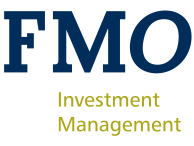"In developing countries in particular, poorer families live uncertain lives and work in the informal economy—not by choice, but by necessity. They need access to financial services to lower their vulnerability and increase their opportunities. Yet when Queen Máxima started working on financial inclusion, more than half of working-age adults globally were excluded from the formal financial system”. (Time, 21 April 2016)
Financial inclusion is key to reduce poverty
Financial inclusion or inclusive financing is the delivery of financial services at affordable costs to disadvantaged and low-income segments of society. It is widely acknowledged as a key enabler to reduce poverty and boost prosperity. Most of the world’s 2 billion unbanked adults live in developing economies. According to the most recent Global Findex data, 89 percent of adults in high-income economies report having an account at a formal financial institution; in developing economies, only 41 percent of adults do.
Our Queen Máxima’s tireless efforts to promote financial inclusion earned her a place in this year’s Time Top 100 most influential people.
Queen Máxima is in the diverse company of 99 outstanding individuals from across the world. To be quite honest, much more diverse than I had assumed when starting to analyse the list. Diverse in terms of age, gender (40% women), as well as occupation (from athlete to artist, from scientist to superstar, from world leader to wrestler, from pope to queen). Less diverse in terms of continents, with a clear overrepresentation of the US at 58%, followed by the rest of the world at 30% and Europe at 12%. A deeper dive shows that the rest of the world category includes OECD countries like Japan and Canada, as well as some large emerging market economies like China and India, but very few of the developing countries typically referred to as frontier markets.
This is where we see that not only financial inclusion has a long way to go
Influential people from emerging market countries make up a far smaller share than emerging markets’ 85% share of the world’s population, their 75% of global land mass or their 55% share of global GDP. Only 28% of the 2016 Time Top 100 live in an emerging market country. It strikes me that several people from emerging market descent appear on the list thanks to their parents’ or their own immigration to the US or Europe. Even our own queen, born in Argentina, is - technically speaking - an example of this migration of minds. How long will it take before more people from emerging and especially frontier markets make it to the top 100?
It’s the economy, stupid!
My guess is that it will take as long as frontier market economies will take to outgrow the term frontier. Their true inclusion in the world’s formal economy is a prerequisite. Only then will people be able to develop their talents and improve their lives. Only then will people be able to influence the world as an outstanding individual, instead of as one of the 1.3 billion people still living in extreme poverty. Because, as worded so well by Amartya Sen: “Poverty is not just a lack of money; it is not having the capability to realize one's full potential as a human being”.
It is my strong belief that financial inclusion of individuals as promoted by Queen Máxima will eventually lead to financial inclusion of countries. Not if but when is the big question. It may take decades, in any case too long. But at last, broad financial inclusion of countries will enable what I call influential inclusion.
So, when the time has come, people in many more countries will be proud of their fellow countrymen in the Time Top 100. Just like my being proud of Queen Máxima and her work inspired the publication of this blog on King’s Day!

